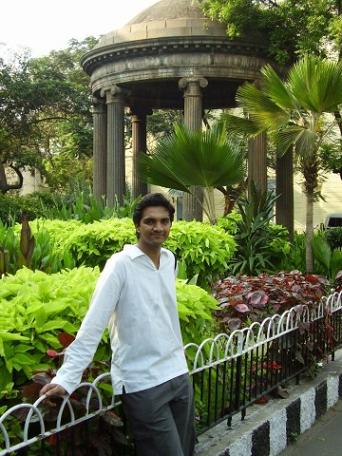No, I’m not dedicating this post to anyone. Rather this post is about true dedication that I see in people around me, dedication to their job, a cause, or doing what they like to do. It’s this dedication that has inspired me to keep going many a time when things are not going too well. So here goes….
Dedication is:
--> The 70 - 80 year poor old woman, who I have been seeing for almost 15 years now. Everyday, as I pass by the temple close to home, I see her pushing her mentally handicapped son in his wheelchair, taking him somewhere, or probably just talking, showing him things in the hope that one day when he recovers, he’ll probably remember all that she has said. She is a real testimony to all that a mother stands for.
Dedication is:
--> The 70 - 80 year poor old woman, who I have been seeing for almost 15 years now. Everyday, as I pass by the temple close to home, I see her pushing her mentally handicapped son in his wheelchair, taking him somewhere, or probably just talking, showing him things in the hope that one day when he recovers, he’ll probably remember all that she has said. She is a real testimony to all that a mother stands for.
--> Bhanumathy ma’am – my math teacher at school. I haven’t seen too many teachers like. Absolutely dedicated to teaching students math, and not just preparing them for exams. A frail, soft-spoken woman, who has never had a harsh word to say to the students. And we never took advantage of that either. Respect, they say can only be commanded, not demanded. I guess they don’t make ‘em like that anymore.
--> The priest at the temple that I visit every weekend. He’s an extremely old man, who can barely stand up and say the mantras clearly. But every time someone comes over to the deity that he sits near, he’s up on his feet and each time, he recites the prayers, while the younger priests just ask you to help yourselves.
--> My neighbor, a very talented musician, who can play as many as 6 instruments proficiently. He’s more than 30 now, and not earning the kind of salaries that society tends to expect of someone of that age. But that has not waned his dedication one bit. For him, music is his first love.
--> Oscar Pistorius, who has lost both his legs and has prosthetic limbs and is now running so fast that he wants to compete in the Olympics – for the abled. Just for the info, his best time for a 100 m dash is 10.6x.
--> My mother, who took care of my grandmother while she was very sick.
--> The soldier, who fights in hostile conditions, for people who would never know him. And for what purpose? His dedication to protect his motherland, his country.
Well, there are so many people, that I can think of who make me feel, that there is so much more that I can do everyday, who inspire me to give in that extra bit into whatever I do. I’m sure all of you have many such people in mind, who might inspire you when all seems lost.
